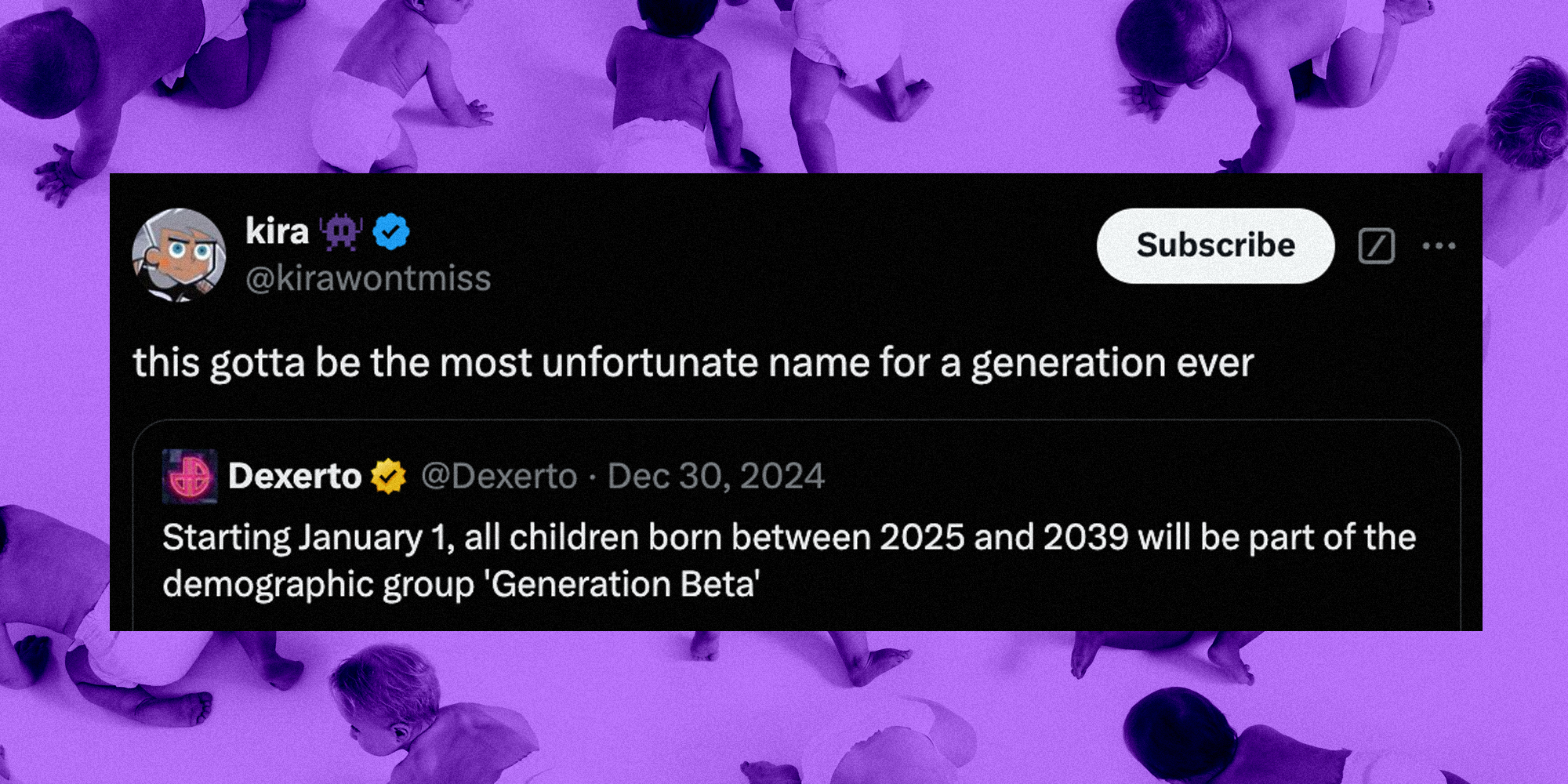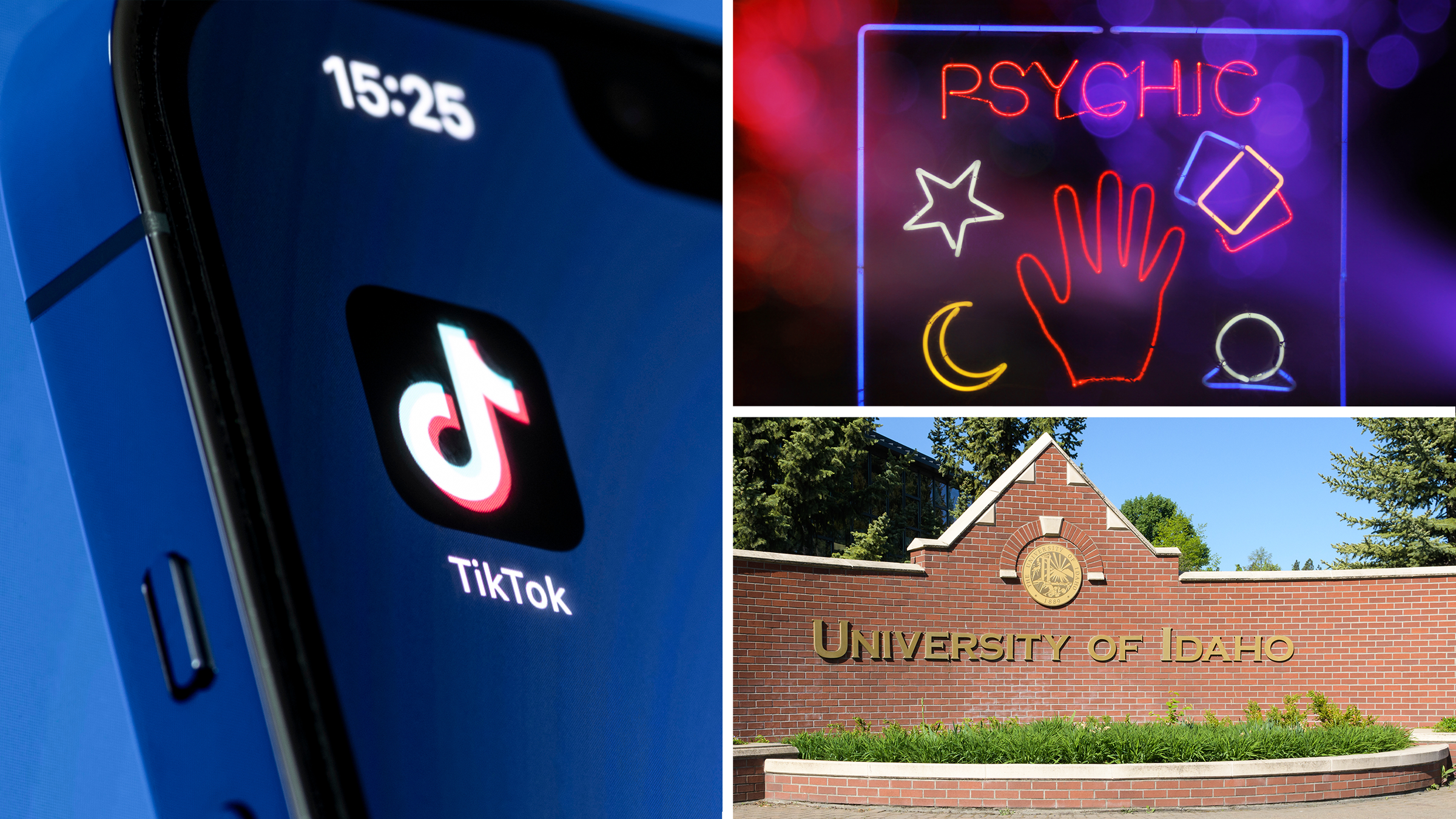Gen Beta is already getting roasted online after folks realized the designation of those born after Jan. 1, 2025. Thanks to fringe communities who made their bunk theories on types of masculinity reach the mainstream, the word "beta" has a negative connotation that's doomed Generation Beta from the start.
Gen Z hating on 1 day old Gen Beta in the quotes pic.twitter.com/YjpSx3qyDb https://t.co/xxaxOVVT0P
— mazzy (@mazzypopstar) January 1, 2025
Jokes about how terrible Gen Beta will be are flooding X, roasting one-day-old newborns in their hospital blankies while younger Zoomers vow to wait 15 years to have their kids.
What is Gen Beta and why are they getting roasted?
Based on the metric that a new generation emerges every 15 years or so, Generation Beta will include all people born between 2025 and 2039, give or take. Many of these will be the progeny of Generation Z, who were born between 1997 and 2012.
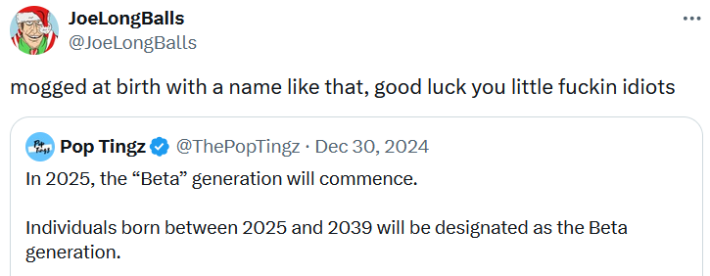
The idea that the new generation started yesterday appears to come from a report by social research company McCrindle, headed by the generational analyst Mark McCrindle. News media jumped on the story, perhaps because generation wars make perfect engagement bait, and the jokes took off.
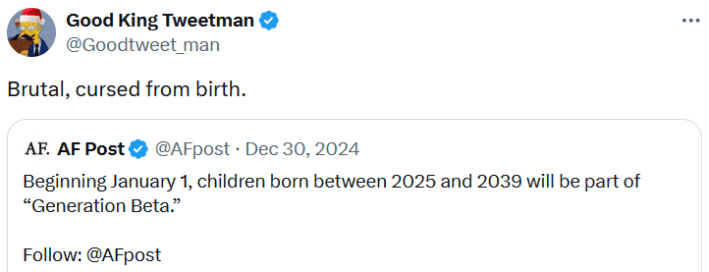
The jokes come from the concept of the "beta male," which is a type of man invented and derided by the manosphere and loosely based on similar designations given to animals like wolves. Incels—members of online communities who identify as "involuntary celibates"—describe beta males as passive, deferential to women, and failing to fit the masculine stereotype embodied by the aggressive, dominant "alpha male."

Social media users are therefore joking about how today's babies are born to be losers. Others are pretending to be angry about the fact that they're currently in an ideal position to start having them.
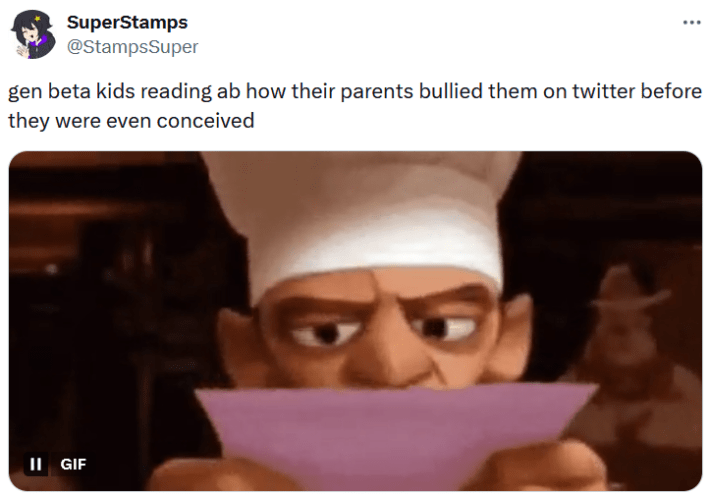

My children bouta grow up as part of "Generation Beta" https://t.co/Fg8fRthpCm pic.twitter.com/wY8QjVPdPL
— ͏ (@solbyru) December 30, 2024
What are the names of the different generations?
The Pew Research Center revised its guidelines for classifying each generation in 2019, stressing that the metric is not an exact science. Different organizations may define the birth year range for each generation a bit differently, based on certain trends and historical factors. For example, Gen Z is often defined by growing up with smartphones, just as millennials grew up with the internet.
Naming generations started in 1883 with The Lost Generation. Researchers named this first group for how its adults seemed "disoriented, wandering, directionless" after surviving WWI, with its youngest members born in 1900. The rest of the generations up to Beta went as follows:
- Greatest Generation: 1901-1927
- Silent Generation: 1928-1945
- Baby Boomers: 1946-1964
- Gen X: 1965-1980
- Millennials: 1981-1996
- Gen Z: 1997-2012
- Gen Alpha: 2013-2024
What comes after Gen Beta?
McCrindle recently declared that the newest generation started coming into existence on New Year's Day 2025, calling them Gen Beta by following the Greek alphabet from Gen Alpha. If that trend follows, and the 15-year generation span continues, the next generations after Beta will look something like this:
- Generation Gamma: 2041 - 2058
- Generation Delta: 2059 - 2072
- Generation Epsilon: 2073 - 2091
- Generation Zeta: 2092 - 2108
- Generation Eta: 2109 - 2125
And so on until the extinction of humanity, or until we come up with something better. At this rate, for those wondering, Generation Sigma won't come around until the year 2320.
The internet is chaotic—but we’ll break it down for you in one daily email. Sign up for the Daily Dot’s web_crawlr newsletter here to get the best (and worst) of the internet straight into your inbox.
